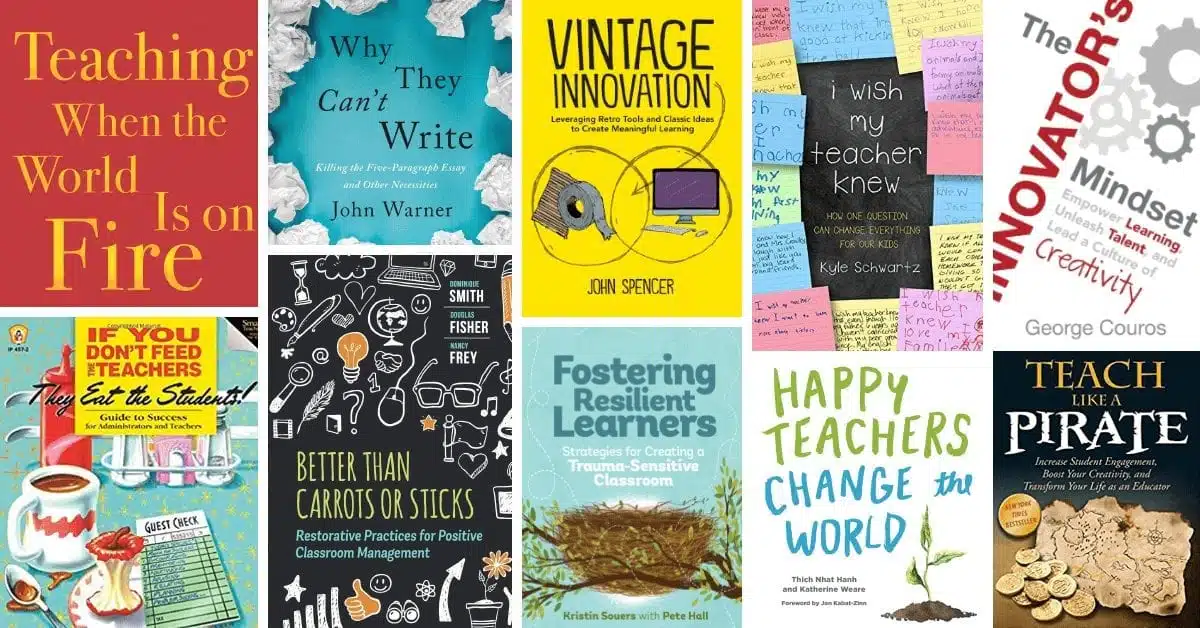Professional development is a continuous process. It involves gaining new skills, knowledge, and experiences to boost your career growth. Books can be a great resource for your career. They aid growth, both personal and professional. This is true whether you’re starting out or a pro seeking to climb the ladder. This article will explore the best books for professional development. It will cover career growth, leadership, productivity, and self-improvement. We will explore each book’s key ideas. We’ll discuss why it is so highly recommended. Finally, we’ll see how it can help you in your career.
Best Books for Professional Development
- “The 7 Habits of Highly Effective People” by Stephen R. Covey
- “How to Win Friends and Influence People” by Dale Carnegie
- “Atomic Habits: An Easy & Proven Way to Build Good Habits & Break Bad Ones” by James Clear
- “Deep Work: Rules for Focused Success in a Distracted World” by Cal Newport
- “The Lean Startup: How Today’s Entrepreneurs Use Continuous Innovation to Create Radically Successful Businesses” by Eric Ries
- “Dare to Lead: Brave Work. Tough Conversations. Whole Hearts.” by Brené Brown
- “The 5 AM Club: Own Your Morning. Elevate Your Life.” by Robin Sharma
“The 7 Habits of Highly Effective People” by Stephen R. Covey
Overview: “The 7 Habits of Highly Effective People” by Stephen R. Covey is a famous book on growth, focusing on both personal and professional aspects. It outlines timeless principles for a more productive, balanced, and fulfilling life, emphasizing character, integrity, and long-term success. Covey stresses the need for personal growth before leading others. For those seeking more resources on professional development, visiting the Best Bookstores in Chicago offers a wide range of books to support your career and personal growth journey.
Key Concepts:
- Be Proactive: Own your actions. Focus on what you can control.
- Begin with the End in Mind: Defining your goals and creating a clear vision of your desired outcomes.
- Put First Things First: Focus on the most important tasks. Prioritize what matters most.
- Think Win-Win: Developing a mindset that seeks mutual benefit in all interactions.
- Seek First to Understand, Then to Be Understood: Practicing empathy and active listening.
- Synergize: Work with others to achieve better results than alone.
- Sharpen the Saw: Always improve yourself in all aspects: physical, and spiritual.
Why It’s Great for Development: This book urges readers to adopt proactive, ethical habits. It promotes a goal-oriented mindset. These are the keys to effective leadership and personal success. Covey’s principles are a great guide. They can help you advance your career or find a better work-life balance.
“How to Win Friends and Influence People” by Dale Carnegie
Overview: It is very influential. The book gives practical advice on building relationships and gaining influence. These are key skills in any profession.
Key Concepts:
- Become genuinely interested in other people. It builds rapport. Show a sincere interest in others.
- Smile: A simple yet powerful gesture that can positively impact your interactions.
- A person’s name is the sweetest sound to them. Using names in conversation helps build trust and respect.
- Use the other person’s interests: It fosters positive communication.
- Avoid criticizing, condemning, or complaining. Criticism can harm relationships. So, Carnegie advocates for positive, constructive feedback instead.
Why It’s Great for Development: At work, success depends on relationships and influence. Carnegie’s timeless advice helps you master networking, leadership, and negotiation. These skills are essential for advancing your career.
“Atomic Habits: An Easy & Proven Way to Build Good Habits & Break Bad Ones” by James Clear
Overview: “Atomic Habits” by James Clear is a powerful guide. It explains the science of habit formation. Small, incremental changes can lead to remarkable results. Clear argues that success is not just about big goals but about the small habits that lead to those goals.
Key Concepts:
- The Four Laws of Behavior Change:
- Make it obvious
- Make it attractive
- Make it easy
- Make it satisfying
- The Aggregation of Marginal Gains: Small, steady gains add up to big results over time.
- Habit Stacking: Linking a new habit to an existing one to make it easier to implement.
- Identity-Based Habits: Focus on becoming the type of person who does a specific action.
Why It’s Great for Professional Development: Many professionals struggle to be consistent. Clear’s book gives a practical way to create habits. They should improve your performance in your personal life, work, and career.
“Deep Work: Rules for Focused Success in a Distracted World” by Cal Newport
Overview: In “Deep Work,” Cal Newport explores focused, uninterrupted work. It is increasingly valuable in our fast-paced, distraction-filled world. He explains that deep work can boost productivity and career success.
Key Concepts:
- Deep Work vs. Shallow Work: Deep work requires full focus and leads to big achievements. Shallow work is low-value and often distracted.
- Work Deeply: Newport gives strategies to cultivate deep work. They include scheduling work sessions and minimizing distractions.
- Embrace Boredom: Newport advocates embracing boredom and avoiding constant stimulation. It can boost your focus.
- Quit Social Media: To reduce distractions, Newport recommends or cutting out social media.
Why It’s Great for Professional Development: In a distracted world, focused work is vital. Newport’s book is a great resource for professionals. It can help them boost their productivity, focus, and ability to do meaningful work.
“The Lean Startup: How Today’s Entrepreneurs Use Continuous Innovation to Create Radically Successful Businesses” by Eric Ries
Overview: “The Lean Startup” by Eric Ries is a must-read for entrepreneurs. It’s a game-changing guide for startup fans. It offers a new way to develop businesses. The book is about building a sustainable business. It advocates for continuous innovation, validated learning, and rapid prototyping.
Key Concepts:
- Build-Measure-Learn: The core feedback loop for businesses. It promotes rapid prototyping of their product. It then measures customer response. It learns from the feedback to refine the offering.
- MVP: A basic product version to test with early adopters before investing heavily.
- Pivot or Persevere: After feedback, companies must decide to pivot (change direction).
Why It’s Great for Professional Development: “The Lean Startup” targets entrepreneurs. But, its ideas can help any professional seeking to innovate and improve processes. The principles of experimentation, feedback, and iteration are valuable for improving.
“Dare to Lead: Brave Work. Tough Conversations. Whole Hearts.” by Brené Brown
Overview: Brené Brown’s “Dare to Lead” focuses on the power of vulnerability in leadership. Brown’s years of research show that courage, and emotional intelligence.
Key Concepts:
- Vulnerability in Leadership: Brown says that vulnerability and empathy are key. So is being open to feedback. These are essential for a trusting, collaborative culture.
- Courageous Leadership: To lead with courage, take risks. Have tough, uncomfortable conversations.
- Rumbling with Vulnerability: It’s about having tough, honest talks. They build trust and transparency.
Why It’s Great for Professional Development: Effective leadership isn’t about control. It’s about building relationships, showing empathy, and fostering a supportive team. Brown’s book is valuable for current and aspiring leaders. It helps them create a culture of trust and openness.
“The 5 AM Club: Own Your Morning. Elevate Your Life.” by Robin Sharma
Overview: Robin Sharma’s “The 5 AM Club” promotes waking up early. It argues that morning routines boost productivity, creativity, and personal growth. The book is a fable. It shares the journey of three transformed people.
Key Concepts:
- The 20/20/20 Formula: Spend the first 20 minutes of your morning exercising. Then, spend 20 minutes reflecting (journaling or meditating). Finally, spend 20 minutes learning (reading or studying).
- The Power of Consistency: Build a daily routine. Stick to it. It leads to long-term success.
- Mastery of Self-Discipline: Train your mind to be disciplined and focused. This will help you perform at your highest level.
Why It’s Great for Professional Development: A morning routine can set the day’s tone. It boosts productivity and mental clarity. Self-discipline, focus, and time management can help. They can build habits for success in both personal and professional life.
Conclusion
Professional development is a journey. It means to always improve skills and expand knowledge. It means to adopt new strategies for career success. The above books offer a wealth of knowledge. They cover many aspects of personal and professional growth. This includes developing leadership skills and mastering time management and productivity. These books can help, whether you’re starting your career or are an experienced pro. They offer insights and actions to unlock your full potential.

